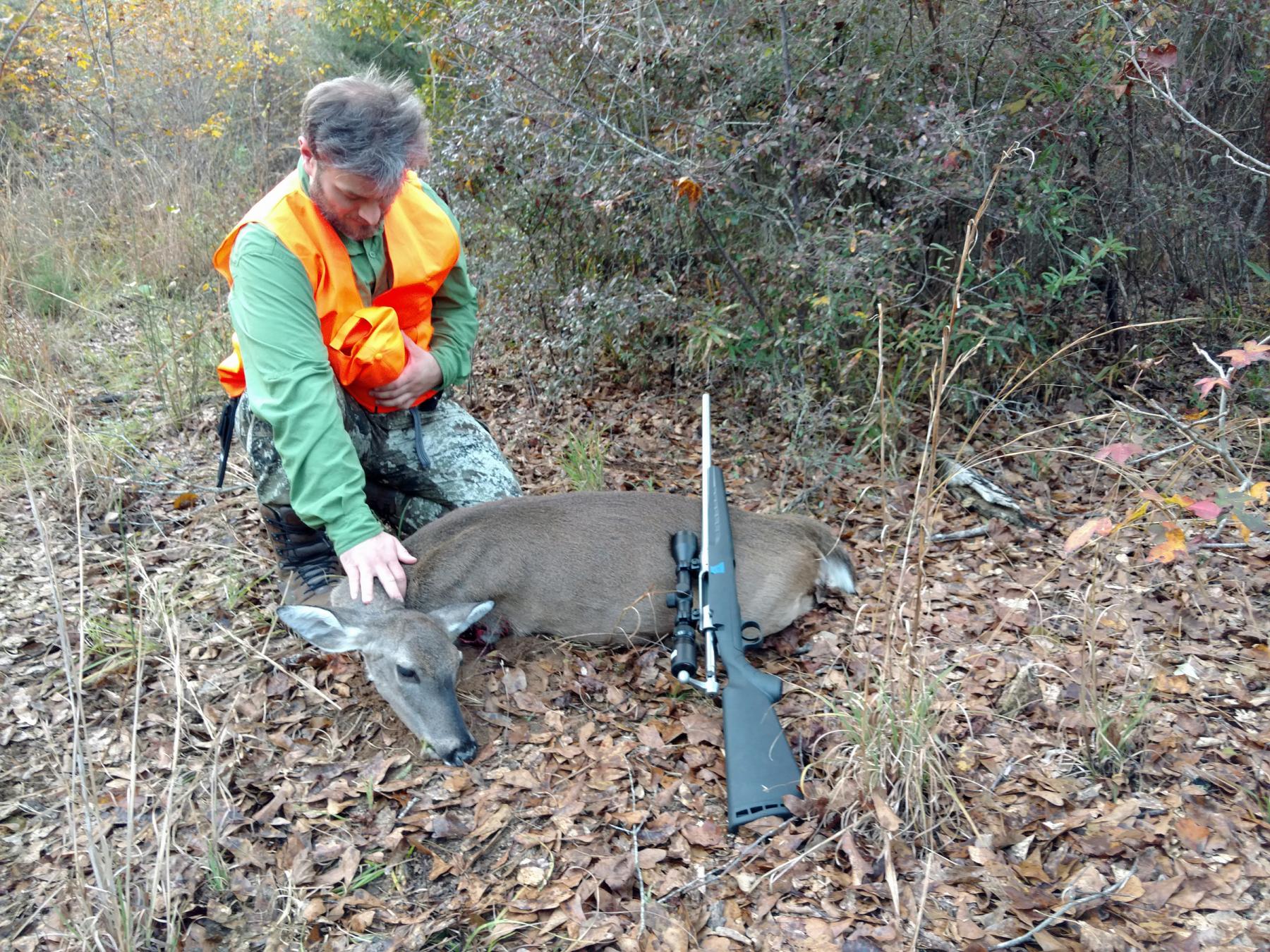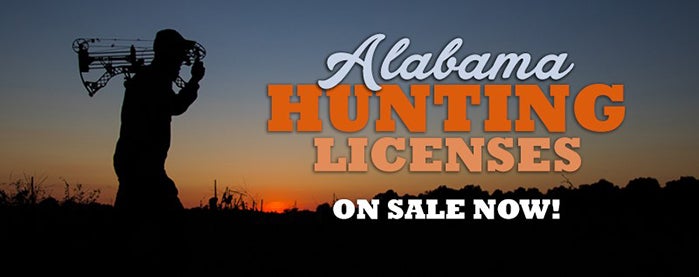Registration Now Open
Learning to hunt may seem out of reach for those who didn’t grow up with hunting as part of their family tradition. For those individuals, the Alabama Division of Wildlife and Freshwater Fisheries (WFF) created an Adult Mentored Hunting Program (AMH) to teach about consumptive outdoor recreation, put wild game on the dinner table and potentially revive or initiate that family tradition.
A resident of Anniston, Alabama, for the past 10 years, Laura Millington grew up in Canada in a family of non-hunters. A curiosity about hunting combined with a drive to improve her diet with healthier, leaner meat is what lead her to participate in two separate AMH hunts.
During a January 2019 adult mentored deer hunt on the Portland Landing Special Opportunity Area (SOA) in Dallas County, she harvested a 160-pound buck and a 115-pound doe. Millington’s buck was the first buck to be harvested during a mentored hunt at Portland Landing. Her second AMH event was a Portland Landing dove hunt in September.
One of Millington’s motivations to learn how to hunt is a desire to take personal responsibility for sourcing her food. In addition to harvesting the animals, she and her husband processed the meat themselves at home.
“Being personally responsible for bringing food to my table was a draw for me to the mentored hunting program,” Millington said. “My goal was to use everything I could from any harvest I made. From the deer I also got hair-on hides, bones and sinew for crafting scrimshaw jewelry and a knife handle. Rendered fat from the deer was also made into tallow soap.”
During the hunts, seasoned hunters guide participants through the experience. WFF mentors Amber Baker and Marianne Hudson joined Millington on her deer hunt. Baker was once again her mentor during the dove hunt.
“Both women were helpful, friendly and put me at ease,” Millington said. “They were as excited as I was when I took my first shot, which unfortunately was a deceptive miss. They were even more excited when I got my buck the next day and then my doe. I think we were all giddy to be going back to the lodge a little early with two deer in the truck bed.”
While having meat in the freezer has been very satisfying, time spent in the field was the best part of the experience for Millington.
“It was calming just watching the wildlife while waiting for a suitable deer to come by and quietly sharing stories in the meantime,” she said. “The dove hunt had a different feel but being out in the field for that was a blast, too! There was a feeling of camaraderie among everybody with playful ribbing back and forth until somebody shouted ‘bird,’ which was followed by a flurry of activity.”
A variety of interests can spark a non-hunter’s desire to hunt. For John Kelly, an electrical engineer in Huntsville, Alabama, establishing a deeper connection with nature was a primary motivation for participating in WFF’s mentored hunting program.
“In so many activities, you are merely an observer,” Kelly said. “You might be in nature, but you aren't a part of it. With hunting, I feel a connection to the wild unlike anything else.”
Kelly already had a love for nature through exploring his family’s farm, but it was harvesting his first deer, a 95-pound doe, during an AMH deer hunt on the Portland Landing SOA that thrust him into the cycle of life.
“When you take an animal's life yourself and your hands are on the process at every step of the way from forest to table, you are filled with a very heavy understanding that food is not just a sterile commodity that comes from a store,” he said. “Every meal is a life and a death. And, in the end, each and every one of us is a part of the same cycle. It's very humbling, and spiritual, and grounding all at the same time.”
The experience of harvesting his own game unexpectedly created not only a deeper connection to nature, but with his family as well.
“I couldn't believe how proud it made me feel,” Kelly said. “I finally understand how my granny feels when she fixes us a meal and makes sure we know that this ‘squash is from the garden right here on the farm.’ There is something completely different about the food you harvest yourself from the land.”
WFF’s mentored hunting program isn’t just about teaching new hunters how to harvest game and stock the freezer. It’s about creating friendships and shared memories through outdoor recreation. Meeting everyone involved in the hunt and getting to know his mentor, Vance Wood, a WFF Conservation Enforcement Officer, was Kelly’s favorite part of the experience.
“I can't fully express how friendly and welcoming they were,” he said. “I've never met a nicer group of people. They treated us like family through the whole trip. I could tell they genuinely love what they do and love having new hunters there to teach.”
To be eligible to participate in an AMH event, you must be at least 19 years of age, possess a valid driver’s license and be new to hunting or have limited hunting experience. WFF mentored hunts are currently available for deer, turkey, squirrel and rabbit. For most adult mentored hunts, the equipment needed will be provided or offered at no cost to the participant.
To be eligible to attend a three-day AMH event, participants are required to attend one of several one-day hunting workshops that are being offered at various Wildlife Management Areas (WMA) throughout the state this fall. Registration for the workshops is currently open.
The first workshop will take place at the Cahaba River WMA shooting range in Shelby County, Alabama, on October 26, 2019. The workshops are available to everyone ages 19 and up regardless of previous hunting experience. There is a $20 registration fee for the workshops. To learn more about Alabama’s AMH program or to register, visit www.outdooralabama.com/hunting/adult-mentored-hunting-program.
The Alabama Department of Conservation and Natural Resources promotes wise stewardship, management and enjoyment of Alabama’s natural resources through four divisions: Marine Resources, State Lands, State Parks, and Wildlife and Freshwater Fisheries. To learn more about ADCNR, visit www.outdooralabama.com.
###







